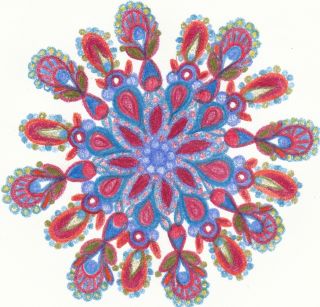Sociopathy
When a Sociopath Is Hell Bent on Destroying You
If you've been abused by a sociopath, here are 16 focus points for recovery.
Posted April 13, 2015 Reviewed by Ekua Hagan
Recent disturbing news involving “evil” actions include the Germanwings crash, Isis beheadings, the murder of an innocent man with a broken taillight by a police officer, a woman putting dead babies in a freezer, the trial of the Boston Marathon bomber and a son murdering a father for reducing his allowance.
In my practice, I have learned of love affairs and abandoned children, rent money squandered on drinking binges and hotels, funds stolen from impaired parents, false accusations of elder abuse by one sibling about another in an effort to destroy family ties and increase inheritance funds, child molestation by teachers, and chronic verbal intimidation.
In a review of a new book about Norwegian mass murderer Anders Breivik, reviewer Asne Seierstad, asks, “Was Mr. Breivik a political terrorist or simply a madman?”
Three Questions to Explore:
- Are the perpetrators of such actions evil (connotes powerful), sick (connotes vulnerable) or evil because they are sick?
- Are such tendencies innate? Are they due to a traumatic upbringing? Or both?
- Can such action be neither sick nor evil, but the result of a momentary slip, zealous ideology, or the powerful influence of another, sicker mind?
First, let’s look at the dictionary definition of "evil." Here is the word "evil" as defined by Dictionary.com:
- Morally wrong or bad
- Wicked
- Harmful
- Injurious, unfortunate, disastrous
- Bad conduct or character
- Anger or irascibility
Now let’s compare “evil” to the DSM diagnosis of Anti-social Personality Disorder (Psychopathy, Sociopathy)
- Lying
- Deceitful
- Conning
- Impulsive
- Aggressiveness
- Reckless disregard for the safety of others
- Irresponsible
- Lack of remorse after hurting others and rationalizing having done so
- Failure to follow the law
Additional Antisocial Personality descriptions from the Mayo Clinic:
- Exploits others
- Using charm or wit to manipulate others for personal gain or for sheer personal pleasure
- Intense egocentrism, sense of superiority and exhibitionism
- Repeatedly violating the rights of others by the use of intimidation dishonesty and misrepresentation
- Lack of empathy for others
- Unnecessary risk-taking or dangerous behaviors
- Poor or abusive relationships
- Failure to learn from the negative consequences of behavior
- Disregard for right and wrong
The evil definition and the antisocial criteria overlap. Clinicians do not use the word evil to describe clients. A charged word that implies moral judgment, evil is not a descriptive term or diagnosis in the DSM. Dr, Stuart Samenow, author of "Inside the Criminal Mind," covers this in his Psychology Today blog.
Clinically speaking, antisocial personality is hard to treat.
Those afflicted can be calculating, cunning, charming, organized, and disarming. Because guilt, shame and remorse are absent yet entitlement, egocentricity and greed reign, the suffering they cause others is meaningless to them. Self-gratification is really all that matters, the guiding principle of daily life.
Often psychopaths try to convince others that they are a persecuted party. Lies roll off the tongue with ease and spontaneity. They justify stealing by falsely claiming that they have been stolen from. Tears fall in the presence of benevolent listeners who may feel they are helping. But the seeming bond breaks if the antisocial person is crossed—and it does not take much. Slight or imagined grievances set off rage, revenge, viciousness, and physical or emotional violence. They will go to shocking lengths or depths to malign those who thwart them.
Though brief, psychotic or paranoid episodes might occur, antisocial people are not insane. The main problem is lack of conscience, compassion, and reciprocity in relationships. This is still a serious psychological impairment.
How does such a disposition come about? Current research suggests that while nurture plays a role, much of personality and temperament can be attributed to genetics. Modeling is a reality and traumatized children may identify with tormentors but cruel and callous personalities start with hard wiring. Abused, deprived, or neglected children can become superstars because they are driven to make things different in a “reaction-formation” sort of way. Thus, we cannot assume that abuse begets abuse or that criminal people were mistreated as children. Loving, devoted parents can produce entitled and cruel children who harm them as well as others.
The good news is that even if anatomy is destiny, early behavioral interventions mitigate the chemical make-up and can help children with conduct disorder, a pre-cursor to sociopathy, to self-regulate. These include:
- Self-discipline
- Therapy
- Containment
- Family interventions
- Impulse control techniques
- Anger management methods
- Confrontation
- Spiritual guidance
Once it was held that people commit awful or unlawful acts out of desperation and that support and understanding could remedy the underlying injury. True, awareness is useful and forgiveness is commendable, but holding the hand of a sociopath leads to disaster. A sympathetic ear fuels entitlement, breeds brazenness, and furthers destruction.
The problem is that sociopaths do not look “evil” in the sense that they are masterful at projecting (and utterly convinced of) their own virtue or vulnerability, no matter what havoc they have wreaked. Well-meaning but ignorant others enable them. Sometimes others aren’t even that well-meaning but rater titillated by a battle. Unconscious sadism directed at those that appear weak might also be at play. Some enjoy seeing others in desperate circumstances as it instills an inner sense of superiority. A schadenfreude-like phenomenon.
At any rate, horrifying psychopathology may be out there or within your own circle. If your brother, sister, cousin, or aunt, are thus endowed you might feel ashamed, doomed, tainted, from poor stock, responsible somehow as if you should have been able to stop the madness. It is especially hard to get your mind around it if you are the target. For kin to want to ruin you is a taboo mind twister, but it happens.

If you have been blindsided by stunning malevolence here are 16 focus points to help you move on.
- Survive the event even when you think you cannot (hard to see that there is light when you are in the dark).
- Fight despair.
- Dis-identify with those who do not have your back but should.
- Find witnesses who mirror, validate and empathize.
- Associate with people who are compelled by truth.
- Indulge in comforts till you regain your footing.
- Get up when you cannot .
- Break contact and cease dialogue with those who are incapable of acknowledging what they have done—forever.
- Brush off debris, detritus, bothersome people who are neutral when being upstanding is called for.
- Start walking, one foot in front of the other; just move.
- Take back your productivity.
- Have faith in your natural capacity for love and joy.
- Hold on to your mental health by working with a good therapist or spiritual guide.
- Be a member of a community where emotionally perverse interactions are unacceptable.
- Reach out to others who suffered the same.
- Don’t be injured, be angry..
Fury is fine, but do not waste time seeking revenge. Trust that comeuppance occurs with time, truth and the psychopath’s long trail of transgressions. Let it go, because what goes around comes around—even when you are not trying to influence the outcome.




